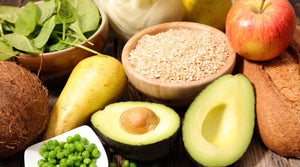Filmmakers Saida Medevedeva and Vasilly Anisimov have taken great pains to make us appreciate the resource we have taken for granted for too long.
In 1956 in Southeast Asia there was a secret military meeting to develop a bacteriological weapon. The discussion was centered around what lethal properties the weapon should have. All at once, everyone present came down with food poisoning and needed medical attention "even though the only thing they ate and drank that day was water present in the room, which when tested, revealed it had no additives.Several centuries earlier during the Inquisition a monk was thrown in jail and was served only stale bread and filthy water.
Yet after 30 days he seemed healthier than ever. Under torture he revealed that he prayed each day over the water "and each day the rank water became transformed into fresh, sweet liquid.These two examples suggest that water is an interactive substance that is affected by human emotions. Both stories are cited in Water: The Great Mystery, a new documentary that reveals many startling discoveries about our earth 's most ubiquitous substance.
Filmmakers Saida Medvedeva and Russian Billionaire Vasilly Anisimov have taken great pains to make us appreciate the resource we have taken for granted for too long. Human beings have squandered water, polluted it and degraded it to the point where it may not be available to large segments of the human population in the future. In fact, some people worry that water may become what oil is today "a resource that is in limited supply and is fought over by nations.
Scientists tell us that there is just as much water today as when the earth was born. Yet we take water for granted. We use it as though we had an infinite supply. It 's time to realize that only one percent of the world 's water is potable and that it may not recover from consistent, extensive abuse.
To see Water: The Great Mystery is to wake up to water 's profound mystery, sensitivity and miraculous properties.
Who knew that water has memory? That our bodies are attuned to the water in the place we were born? That fresh spring water is superior to city water "and that animals always prefer it? That holy water, which has been in the presence of prayer, can revive dying plants and sick animals? That Structured Water can increase the strength and productivity of plants without the need for fertilizers?

These and many other findings are explained by researchers from around the world who are studying water and were interviewed for the film, including Kurt Wuthrich, the 2002 Nobel Prize laureate for chemistry, and the most famous water researcher of our day, Masaru Emoto.
Water responds to us. It imprints what we do, say and think and changes accordingly. And this in turn affects all life forms. Since we are made of water, we assimilate water 's characteristics. Our health and wellbeing depend on its purity. After seeing Water: The Great Mystery, it is impossible to look at water in the same way. Hopefully, we will want to preserve it.
As Emoto reports, gratitude and love are the best ways to revitalize water and maximize its healing and nourishing potential.
By Sylvia Somerville



